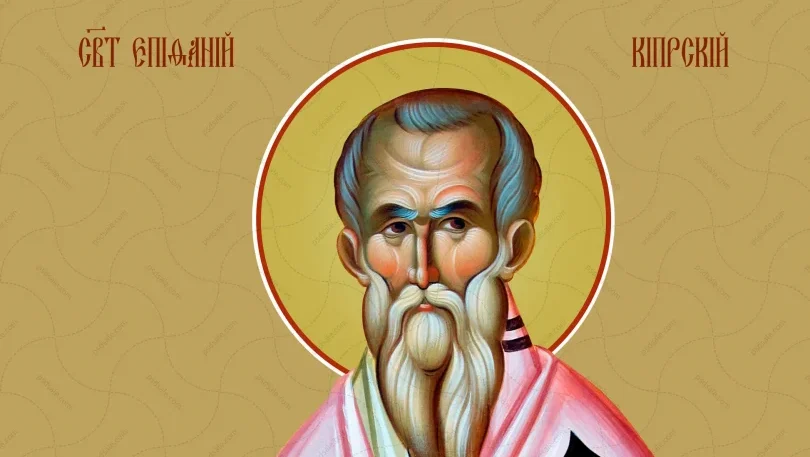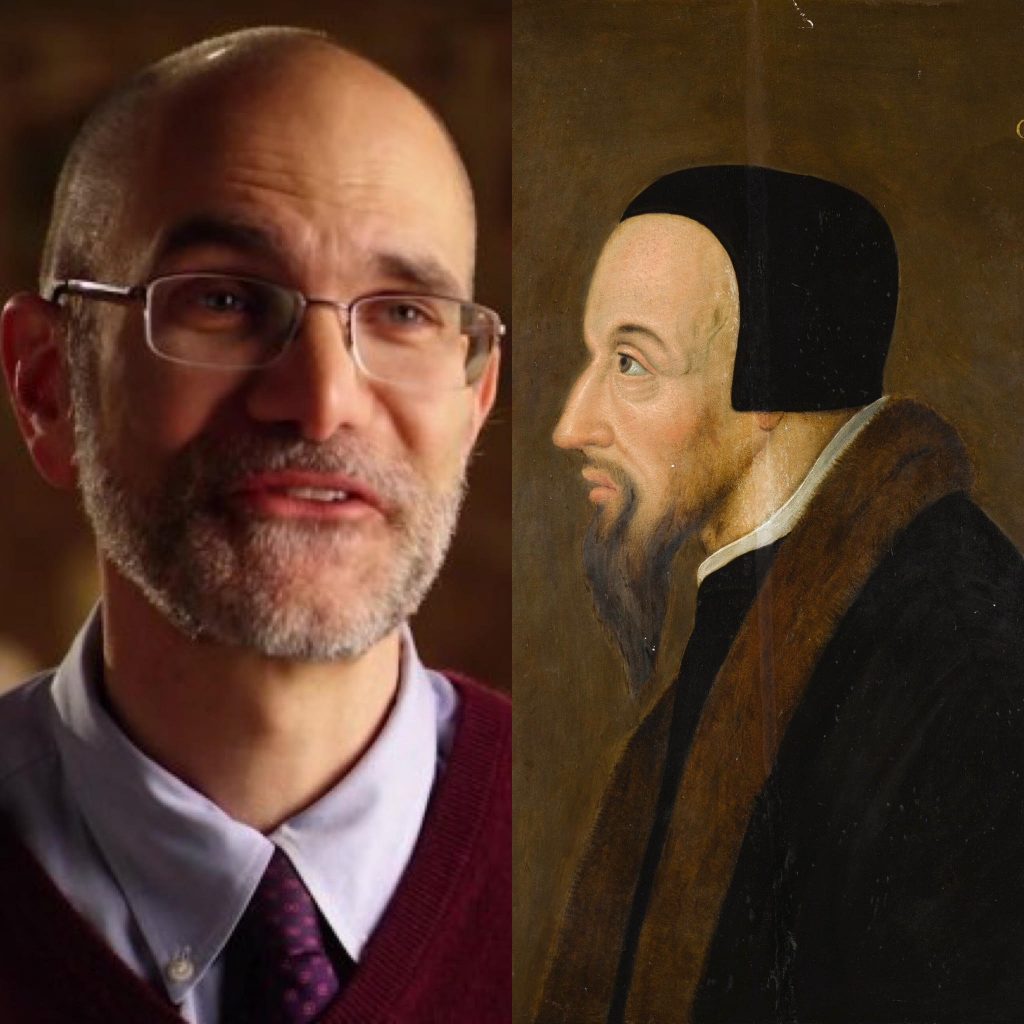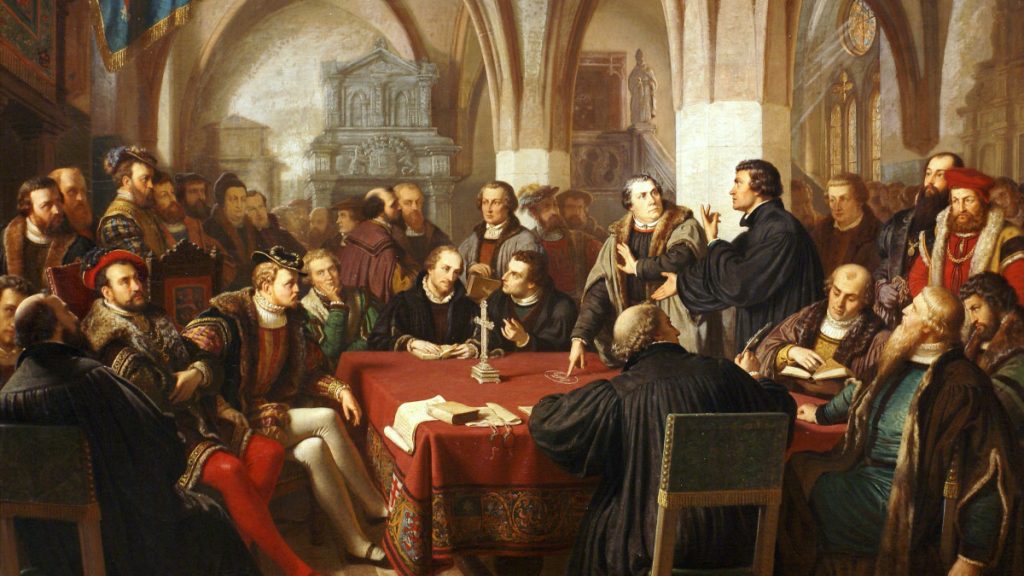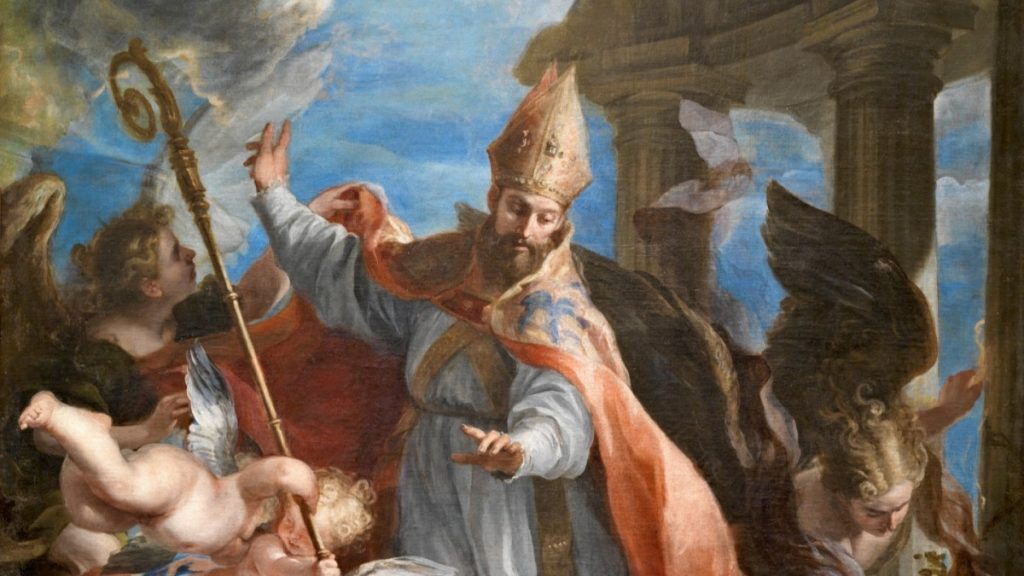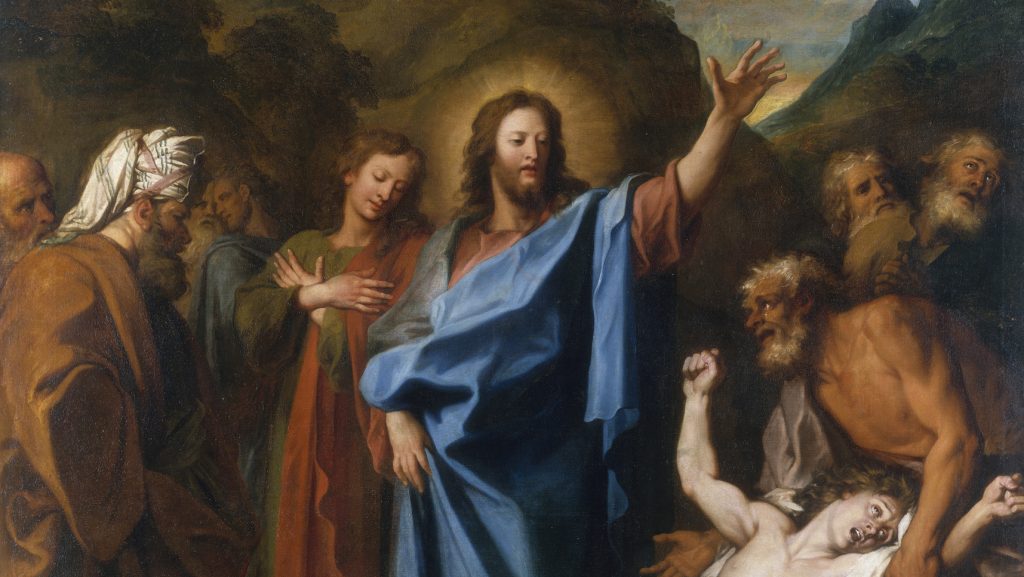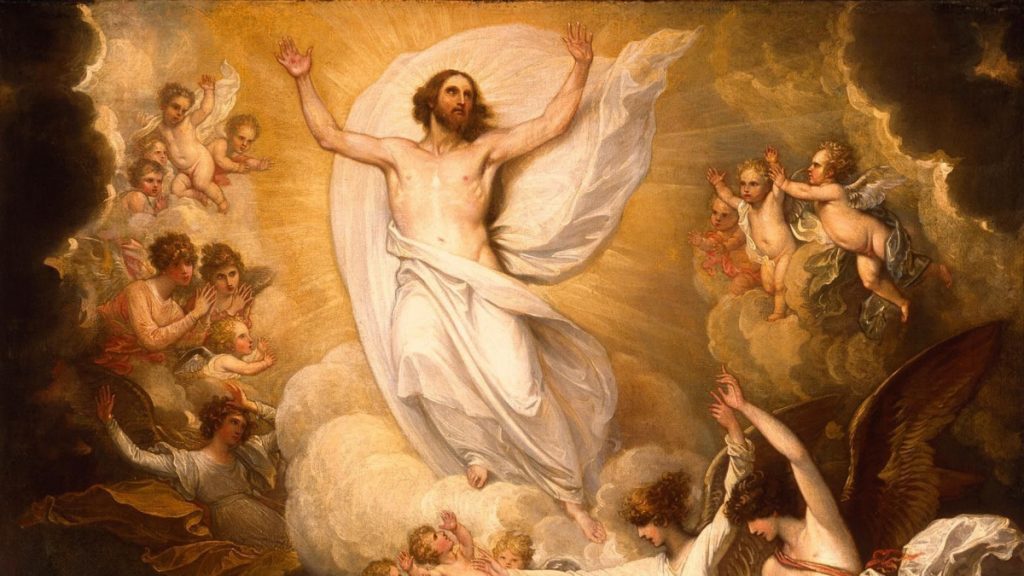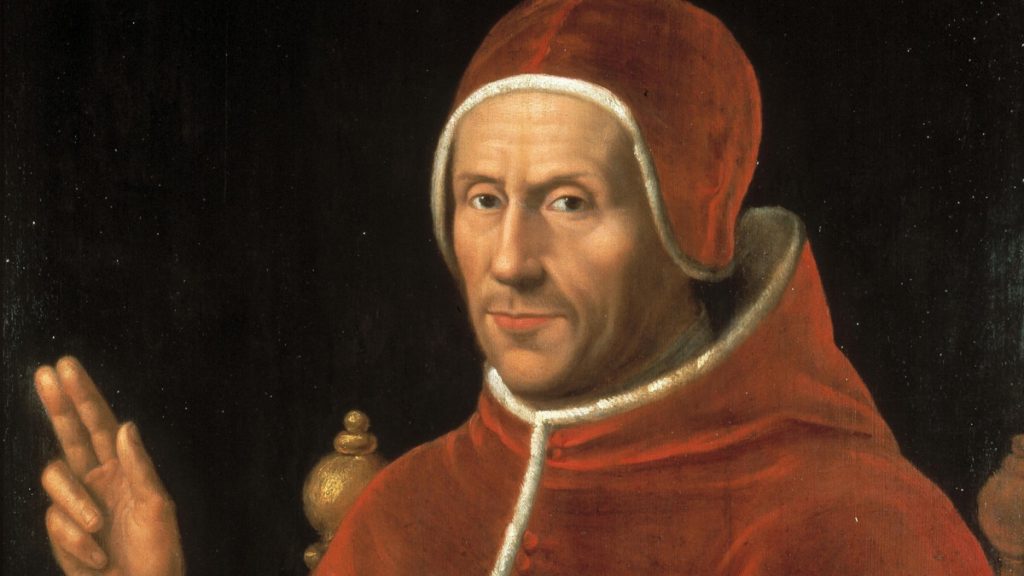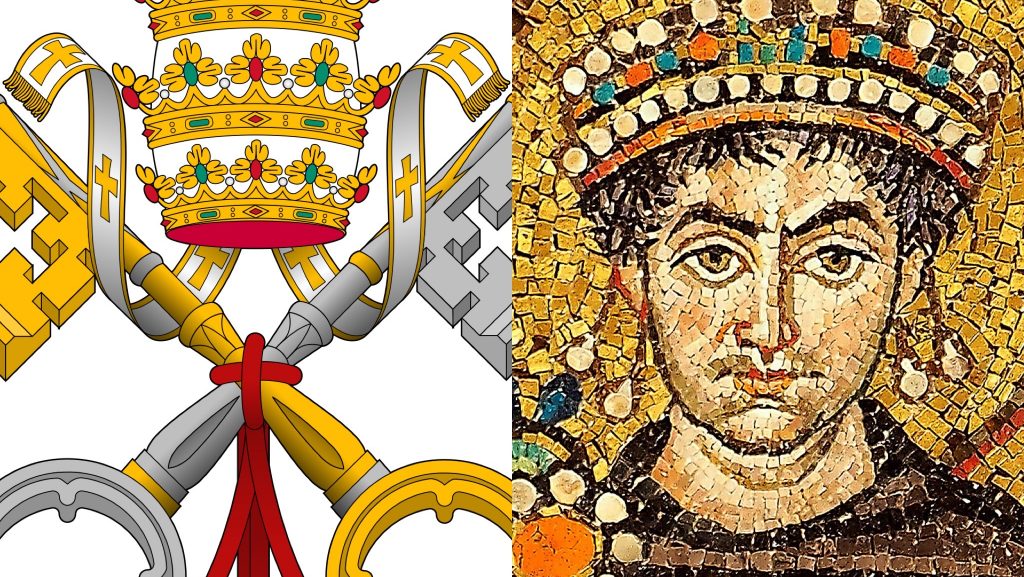(Updated July 15, 2025)
This Author Quote Archive collects pertinent quotes from the Church Father, St. Epiphanius of Salamis.
Next to each quote are the Topic Quote Archives in which they are included.
This Quote Archive is being continuously updated as research continues. Quotes marked with “***” have not yet been organized into their respective Topic Quote Archives.
Books
St. Epiphanius of Salamis, Ancoratus, or The Well-Anchored Man (374)
- The Papacy and the Invincibility of the Church | Ch. 9, 11, 35
(Ch. 9)1
Because of the temple of God, they also will be called holy men, those who established in themselves the Holy Spirit of God, as the chief of the Apostles [Peter] bears witness, the one who was deemed worthy to be blessed by the Lord, because the Father revealed to him. Therefore, the Father reveals the true Son to him [Peter], and he is blessed; and again the same one [the Father] reveals his Holy Spirit. It was necessary for the first of the Apostles, the solid rock, “upon whom the church of God would be built, and the gates of Hades will not overcome it” (Matt. 16:18), [to declare this?]. The gates of Hades are the heresies and the heresiarchs. For in every way the faith was 75 | 76 made firm in him, in the one who received the keys of heaven, in the one who looses upon the earth and binds in heaven. For in this man are found all the subtleties being asked of the faith.
This man is the one who denied three times and cursed three times before the rooster crowed [Matt. 26:34, 69-74; Mark 14:30, 66-71; Luke 22:54-61]. For indicating the abundance of his love toward his master, affirming confidently he was saying: “even if all deny you, I will not deny” (Matt. 26:33; Mark 14:29), saying so much in reference to his [Christ’s] humanity. This is the one who wept at the sound of the rooster [Matt. 26:75; Mark 14:72; Luke 22:62], in order that he might truly confess that the arrest of the Son of God was not in appearance, but true, in order that he [Peter] might say that he was a true man in weeping at his arrest, having been handed over by the Pharisees.
This is [the] one who came to Galilee to fish, the one who was a partner of the one reclining upon his breast (for he [John], learning from the Son and receiving from the Son, was revealing the power of knowledge, and he was aided by the Father, laying the foundation of the certainty of the faith). He [Peter] is the one who, unclothed in the boat on [Lake] Tiberias [John 21:7], back after being called, was fishing (and the disciple, whom Jesus loved, [was with him?]). After the statement that the Savior made: “Children, you do not have anything to eat, do you?” (John 21:5) and, “Cast on the right side of the ship and you will find [fish]” (John 21:6), and after the astonishing statement happened, John, whom Jesus loved, said to Peter: “It is the Lord” (John 21:7), man according to the flesh, born from Mary in truth not in appearance, being God [according to] Spirit, coming form the Father from the heavens.
[This man] is the one who heard from him [Christ], “Peter, tend my sheep” (John 21:15), the one who has been entrusted with the flock, the one guiding well in the power of his own master, the one confessing concerning the flesh, the one truthfully announcing the things of the Father 76 | 77 concerning the Son, the one indicating the Spirit and his worthiness to divinity, the one giving the right hand of fellowship to Paul and Barnabas with James and John, in order that “through three witnesses all that is said may stand” (Deut. 19:15; Matt. 18:20).
(Ch. 11)2
How do they dare to say that the Spirit is alien from God, those who especially are possessed by madness and not by truth, those who do not learn the true expression of the trustworthy and holy Paul the Apostle, to whom the chief of the Apostles, Peter, the one worthy to hold the keys of the kingdom, gave his right hand…
(Ch. 34)3
For the chief of the apostles, Peter, interprets for you the purpose of his death, saying, “put to death in flesh, but made alive in spirit” (1 Pet. 3:18).
(Ch. 119)4 ***
Since in our generation some other successive heresies emerged, that is, in the time of Valentinian and Valens, the emperors in the tenth year of their reign and again in the sixth year of Gratian, that is, in the ninetieth year of Diocletian the tyrant. Because of this, both you and we, and all the orthodox bishops, and in short the entire holy Catholic Church, against the heresies which have emerged subsequently, in accordance with the faith of those holy fathers which has been ordained earlier, thus speak, especially to those coming to holy baptism, in order that they may declare and speak thus: 224 | 225
We believe in one God, almighty Father, Maker of all things both visible and invisible, and in one Lord Jesus Christ, that is, from the ousia of the Father, God from God, Light from Light, true God from true God, begotten not made, homoousios with the Father, through whom all things came to be, both that which is in the heavens and that which is on the earth, both visible and invisible. [We believe in] the one who, for the sake of us men and for the sake of our salvation, descended and was made flesh, that is begotten perfectly from holy Mary the ever-virgin through the Holy Spirit, who became man, that is, assumed a perfect man, soul and body and mind and all that is a man apart from sin: who not from a seed of man nor [having come to be] in a man, but in himself formed anew flesh into one holy unity… 225 | 226 We believe in one Catholic and apostolic Church and in one baptism of repentance and in a resurrection of the dead and a just judgment of souls and of bodies and in a kingdom of heavens and in everlasting life. Those who say that there was ever [a time] when the Son or the Holy 226 | 227 Spirit was not, or that he came to be from non-existence or from another hypostasis or ousia, saying that the Son of God or the Holy Spirit is mutable or variable, these men the Catholic and apostolic Church, the mother of both you and us, anathematizes…
Because you and your children, most blessed, are thus believing and fulfilling the commandments from this faith, we hope that you pray always on our behalf to have a portion and inheritance in the same faith and in the inheritance of its commandments…But peace to all who submit to this canon of this true and orthodox faith and upon the Israel of God [Gal. 6:16].
St. Epiphanius of Salamis, The Panarion of Epiphanius of Salamis (c. 375)
- Apostolic Tradition | Book 2, Ch. 6, §§4-7
- Holy Mary, Mother of God | Book 2, Ch. 78, §§5-6
- The Papacy and the Invincibility of the Church | Book 1, Ch. 27, §6
- The Sacrament of Marriage, Divorce, and Contraception | Book 1, Ch. 26, §5
But although they [Egyptian heretics] have sex with each other they renounce procreation. It is for enjoyment, not procreation, that they eagerly pursue seduction, since the devil is mocking people like these, and making fun of the creature fashioned by God. They come to climax [orgasm] but absorb the seeds of their dirt, not by implanting them for procreation, but by eating the dirty stuff themselves.
For the bishops at Rome were, first, Peter and Paul, the apostles themselves and also bishops–then Linus, then Cletus, then Clement, a contemporary of Peter and Paul whom Paul mentions in the Epistle to the Romans. And no one need wonder why others before him succeeded the apostles in the episcopate, even though he was contemporary with Peter and Paul–for he too is the apostles’ contemporary… 113 | 114
In any case, the succession of the bishops at Rome runs in this order: Peter and Paul, Linus and Cletus, Clement, Evaristus, Alexander, Xystus, Telesphorus, Hyginus, Pius, and Anicetus, whom I mentioned above, on the list. And no one need be surprised at my listing each of the items so exactly; precise information is always given in this way.
However, none of the sacred words need an allegorical interpretation of their meaning; they need examination, and the perception to understand each proposition’s force. But tradition must be used too, for not everything is available from the sacred scripture. Thus the holy apostles handed some things down in scriptures but some in tradition, as St. Paul says, “As I delivered the traditions to you” (1 Cor. 11:2), and elsewhere, “So I teach, and so I have delivered the tradition in the churches” (1 Cor. 11:2), and “If you keep the tradition in memory, unless ye have believed in vain” (1 Cor. 15:2). God’s holy apostles, then, gave God’s holy church the tradition that it is sinful to change one’s mind and marry after vowing virginity. And yet the apostle wrote, “If the virgin marry she hath not sinned” (1 Cor. 7:36). How can the two statements agree? By that virgin he does not mean the one who had made a vow to God, but the one on whom virginity has been forced by the scarcity, at that period, of men who believe in Christ.
(§5) …For I hear that someone has a new notion about the holy, ever-virgin Mary, and dares to cast a blasphemous suspicion on her, so that our generation will be exactly like a dangerous serpent and poisonous snake. [Such a snake] lurks in a dark den and strikes everyone with its bites, one near the face, another near the heel, another near the hand, so that no one can avoid the bite of unbelief. Though one suppose he has escaped it in one way he does not avoid the poison in another, while one whose faith is sound in one respect is exposed to some other form of harm.
(§6) Why this ill will? Why so much impudence? Isn’t Mary’s very name (i.e. “Virgin”) a testimony, you trouble maker? Doesn’t it convince you? Who, and in which generation, has ever dared to say St. Mary’s name and not add “Virgin” at once when asked? The marks of excellence show from the titles of honor themselves. For the righteous received the honors of their titles appropriately for them and as it became them. “Friend of God” was added to the name, “Abraham” (Jas. 2:23), and will not be detached from 604 | 605 it. The title “Israel,” was added to “Jacob” and will not be changed. The title, “Boanerges,” or “sons of thunder,” was given to the apostles and will not be discarded. And St. Mary was given the title, “Virgin,” and it will not be altered, for the holy woman remained undefiled. “Doth not nature itself teach you?” Oh, this new madness, these new troubles!…
Letters
St. Epiphanius of Salamis, Letter to John, Bishop of Jerusalem (Letter 51 in St. Jerome) (394)
- The Sacrament of Holy Orders, and the Authority of the Priesthood | §1
- The Heretical and Schismatic Spirit | §§4, 6
(§1) …For, although each individual bishop of the Church has under him churches which are placed in his charge, and although no man may stretch himself beyond his measure [2 Cor. 10:14], yet the love of Christ, which is without dissimulation [Rom. 12:9], is set up as an example to us all; and we must consider not so much the thing done as the time and place, the mode and motive, of doing it…I knew, moreover, that you could not find or lay hands on this servant of God who had several times fled from you simply because he was reluctant to undertake the onerous duties of the priesthood, and that no other bishop could easily find him.
(§4) …If this doctrine is true what becomes of our faith? Where is the preaching of the resurrection? Where is the teaching of the apostles, which lasts on to this day in the churches of Christ?…There can be no doubt that the meaning of the divine Scripture is different from the interpretation by which he [a heretic] unfairly wrests it to the support of his own heresy. This way of acting is common to the Manichaeans, the Gnostics, the Ebionites, the Marcionites, and all the votaries of the other eighty heresies, all of whom draw their proofs from the pure well of the Scriptures, not, however, interpreting it in the sense in which it is written, but trying to make the simple language of the Church’s writers accord with their own wishes…
(§6) But may God free you, my brother, and the holy people of Christ which is entrusted to you, and all the brothers who are with you, and especially the presbyter [priest] Rufinus, from the heresy of Origen, and other heresies, and from the perdition to which they lead. For, if for one word or for two opposed to the faith many heresies have been rejected by the Church, how much more shall he be held a heretic who has contrived such perverse interpretations and such mischievous doctrines to destroy the faith, and has in fact declared himself the enemy of the Church!
Footnotes
- St. Epiphanius of Salamis, Young Richard Kim, trans., The Fathers of the Church, Vol. 128: St. Epiphanius of Cyrus, Ancoratus (Washington, DC: The Catholic University of America Press, 2014), 75-77. ↩︎
- St. Epiphanius of Salamis, Young Richard Kim, trans., The Fathers of the Church, Vol. 128: St. Epiphanius of Cyrus, Ancoratus (Washington, DC: The Catholic University of America Press, 2014), 79. ↩︎
- St. Epiphanius of Salamis, Young Richard Kim, trans., The Fathers of the Church, Vol. 128: St. Epiphanius of Cyrus, Ancoratus (Washington, DC: The Catholic University of America Press, 2014), 112. ↩︎
- St. Epiphanius of Salamis, Young Richard Kim, trans., The Fathers of the Church, Vol. 128: St. Epiphanius of Cyrus, Ancoratus (Washington, DC: The Catholic University of America Press, 2014), 224-25. ↩︎
- St. Epiphanius of Salamis, Frank Williams, trans., The Panarion of Epiphanius of Salamis: Book 1 (Sects 1-46), 2nd ed. (Leiden: Brill, 2009), 94. ↩︎
- St. Epiphanius of Salamis, Frank Williams, trans., The Panarion of Epiphanius of Salamis: Book 1 (Sects 1-46), 2nd ed. (Leiden: Brill, 2009), 113, 114. ↩︎
- St. Epiphanius of Salamis, Frank Williams, trans., The Panarion of Epiphanius of Salamis, Book II and III, De Fide (Leiden: Brill, 2013), 121. ↩︎
- St. Epiphanius of Salamis, Frank Williams, trans., The Panarion of Epiphanius of Salamis: Book 1 (Sects 1-46), 2nd ed. (Leiden: Brill, 2009), 604-605. ↩︎
